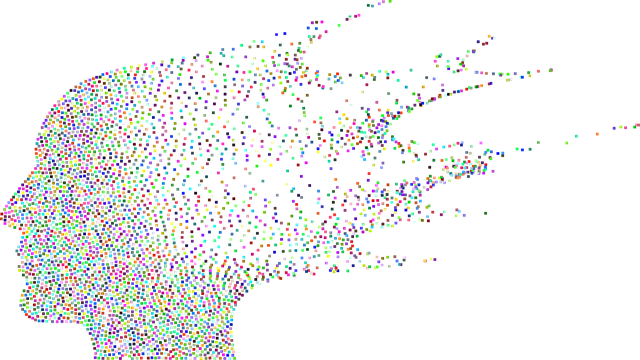Denver Mental Health Evaluations Therapy combines quantitative surveys (like PHQ-9), qualitative interviews, observation, and client feedback to create effective, personalized therapy plans. These evaluations consider cultural sensitivity, identify strengths and weaknesses, and promote self-esteem for inclusive care tailored to diverse backgrounds. By integrating continuous improvement, evidence-based practices, and outcomes measurement, Denver's mental health ecosystem optimizes therapy outcomes, fostering safer, more supportive therapeutic environments for all individuals seeking wellness.
“In the realm of mental wellness, evaluating program effectiveness is paramount for delivering quality care. This article explores Denver Mental Health Evaluations as a cornerstone for successful therapy, delving into key evaluation methods that drive continuous improvement. From understanding foundational assessment tools to leveraging client feedback and outcomes measurement, we uncover strategies to enhance Denver’s mental health services. By integrating data-driven insights, this approach ensures programs are tailored to meet the unique needs of individuals seeking support.”
- Understanding Denver Mental Health Evaluations: A Foundation for Effective Therapy
- Key Methods in Mental Wellness Program Evaluation
- The Role of Client Feedback and Outcomes Measurement
- Continuous Improvement: Using Data to Enhance Denver Mental Health Services
Understanding Denver Mental Health Evaluations: A Foundation for Effective Therapy

Denver Mental Health Evaluations serve as a foundational step for effective therapy and treatment plans. These evaluations delve into an individual’s psychological well-being, identifying challenges such as depression prevention, anxiety, or other mental health concerns. By understanding the patient’s unique circumstances, therapists can tailor interventions to address specific needs. The process involves comprehensive assessments that consider cultural sensitivity in mental healthcare practice, ensuring inclusive care tailored to diverse backgrounds and experiences.
This evaluation methodology goes beyond diagnosing by exploring an individual’s strengths, weaknesses, and potential for growth. It facilitates self-esteem improvement and fosters a sense of agency, enabling clients to actively participate in their therapy journey. By employing Denver Mental Health Evaluations, healthcare professionals create a solid framework for successful treatment outcomes, ultimately enhancing the overall mental wellness of individuals seeking support.
Key Methods in Mental Wellness Program Evaluation

In evaluating Denver mental health evaluations and therapy programs, a multifaceted approach is essential to assess their effectiveness. Key methods include quantitative surveys and qualitative interviews, providing a comprehensive understanding of participants’ experiences and outcomes. These techniques capture both the immediate effects and long-term impact of the programs on emotional well-being promotion techniques and emotional healing processes. Standardized questionnaires, such as the Patient Health Questionnaire (PHQ-9), measure symptoms of depression, while semi-structured interviews allow for deeper insights into participants’ perceptions and lived experiences.
Additionally, observation and documentation play a vital role in program evaluation. Direct observation of therapy sessions can reveal communication strategies that foster engagement and therapeutic alliances. By examining the dynamic between therapists and clients, evaluators can assess the quality of interaction and its potential influence on emotional healing processes. This mixed-methods approach integrates quantitative data with rich qualitative insights, enabling a nuanced understanding of mental wellness program outcomes and informing improvements in Denver mental health evaluations and therapy practices.
The Role of Client Feedback and Outcomes Measurement

The role of client feedback is pivotal in evaluating Denver mental health evaluations and therapy programs. By actively gathering input from individuals who have undergone treatment, professionals can gain valuable insights into the effectiveness and impact of their programs. Client feedback provides a firsthand account of their experiences, including improvements in symptoms, changes in overall well-being, and satisfaction with care. This qualitative data helps identify areas that resonate well with clients and aspects that need refinement, ensuring the mental health evaluations and therapy align with individual needs and preferences.
Outcomes measurement plays a complementary role by quantifying these changes. Through standardized tools and metrics, professionals can assess specific outcomes related to mental health conditions, such as reduced anxiety or depression symptoms, improved coping mechanisms, and enhanced social functioning. Integrating client feedback and outcomes measurement allows for a comprehensive evaluation of mental health programs design, including the effectiveness of interventions and the overall risk assessment for mental health professionals. This dual approach ultimately fosters continuous improvement in Denver mental health evaluations and therapy services.
Continuous Improvement: Using Data to Enhance Denver Mental Health Services

In the pursuit of enhancing Denver mental health services, continuous improvement is a key strategy that leverages data-driven insights to optimize therapy outcomes. By implementing robust evaluation methods, such as Denver Mental Health Evaluations, service providers can gain valuable insights into patient progress and treatment effectiveness. This data-centric approach enables tailored adjustments to therapy plans, ensuring they align with individual needs. Continuous improvement cycles also facilitate the integration of emerging research and best practices, thereby fostering a dynamic and responsive mental health care ecosystem in Denver.
Moreover, incorporating Risk Management Planning for Mental Health Professionals, Social Skills Training, and Conflict Resolution Techniques into evaluation frameworks enhances overall service quality. These additional strategies contribute to a comprehensive risk mitigation approach, promoting safer and more supportive therapeutic environments. By combining data analysis with evidence-based practices, Denver’s mental health services can achieve greater success in assisting individuals on their journey towards improved mental wellness.
Evaluating mental wellness programs is essential for ensuring the effectiveness of Denver Mental Health Evaluations and therapy. By employing key methods, such as client feedback and outcomes measurement, service providers can gather valuable insights to drive continuous improvement. Integrating data-driven approaches allows for a more nuanced understanding of treatment success, ultimately enhancing the quality of Denver mental health services and improving patient outcomes.












